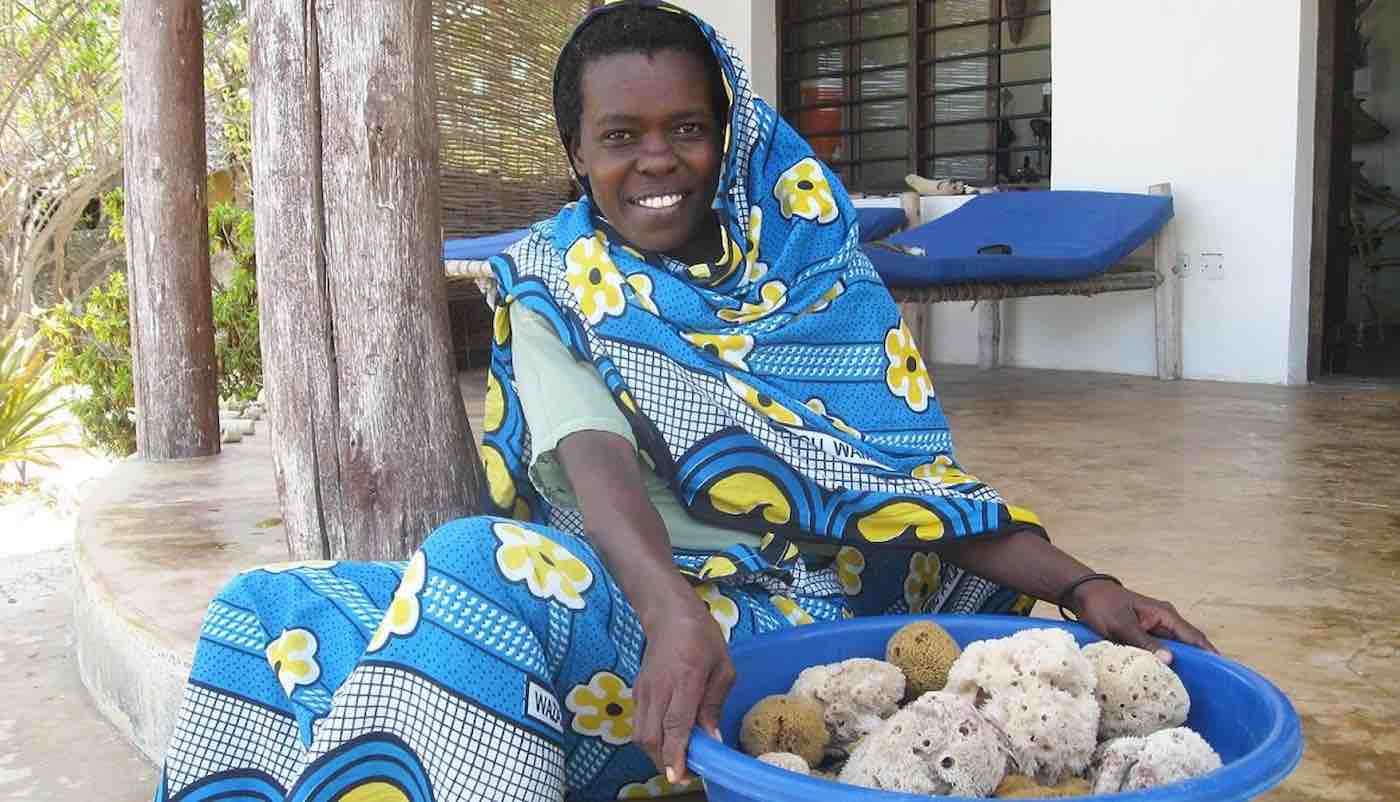The City of Berlin Now Runs a Department Store That Sells All Recycled Goods
Berlin has opened B-Wa(h)renhaus—a department store that sells only recycled products to promote reuse and fight the throw away culture.

This article was reprinted with permission from World At Large—a news website which covers politics, nature, science, health, and travel.
In an area characterized by poverty, overexploitation of sea resources, and high rates of unemployment, these women from Zanzibar are beginning to farm sea sponges as a more reliable source of income.
Organized by Marine Cultures, a small Zanzibar-focused nonprofit headquartered in Zurich, 3 to 4 sea sponge farms are being launched every year to help unemployed and single mothers support their families.
Historically relying on seaweed for income, the people of Jambiani have been unable to rely on the trade because of disruptions in production from diseases and pests, and the crop's low market price worldwide.
Marine Cultures's Christian Vaterlaus recently detailed how sponge farming became the primary idea for saving the livelihoods of these seaweed farmers in an article published in PANORAMA: a platform hosted by the International Union for the Conservation of Nature (IUCN) for nonprofits and other organizations to host solutions that benefit the natural world.
"When searching for alternative means of income, many aspects such as the know-how of the parties involved, eco-friendliness, market opportunities, investment requirements, general acceptance of the method, scalability, and availability of resources need to be considered," wrote Vaterlaus. However, "aquaculture of sponges was identified to be a suitable alternative to seaweed farming promising substantially higher incomes."
A research trip to Southeast Asia and the Pacific yielded this idea after the group witnessed an organization working with community members to farm sea sponges and invertebrates with materials and methods that were both sustainable and very cheap.
Sea sponges are used around the world as shower luffas and sustainable methods for removing makeup and paint. Since the sponges are anti-allergenic, dermatologists often recommend them for washing infants or for those with sensitive skin.
After Marine Cultures opened up their first sea sponge farm in Zanzibar back in 2009, they started testing more than 120 species of sponges to find one that was not only suitable for use in the bath, but also sustainable and environmentally harmless.
"We had to invest a lot of time to figure out best farming methods," writes Vaterlaus.
Since their sponge farming operation was slow to get off the ground, Marine Cultures also started coral farming for the international aquarium trade in 2014.
Vaterlaus says that aquaculture practices—such as sea sponge farming—is "like land-based agriculture where years of experience and trial and error are key to shape best practices." That being said, the hard work can certainly pay off; one single farm can feed 2 to 3 large families while 3 new farms can be launched each year.
In contrast to pearl or fish farming, a sponge farm can be started with little to no effort while simultaneously empowering local women to learn the skills of a fisherman, marine biologist, merchant, entrepreneur, swimmer, and farmer all at once.
"To save the created jobs in the long-term, the coastal communities of Zanzibar have to learn more about the sea, the importance of corals, sea grass, mangroves and biodiversity to manage their natural marine resources themselves sustainably," added Vaterlaus.

A Marine Cultures update published in February 2020 says the sponge farming operations are going well. The older sponge farms managed by some of the Jambiani women are producing more sponges these days than in previous years, as ecological conditions improve and knowledge is shared among participants.
Shemsa is just one of the Zanzibar women who have found success in sea sponge farming. She told Marine Cultures: "We've always lived in the lagoon with sponges—but only now have we learned how they help us to improve our lives and those of our children.
"Sometimes something is very close to us without us knowing how to make money with it," she added. "Thanks to my training as a sponge farmer, I can feed my family, build my own house and have electricity. We may never achieve all of our goals, but I have already achieved half of mine."
Reprinted with permission from World at Large
It's Not Hard To Sea That You Should Share This Cool Story With Friends On Social Media…
Be the first to comment